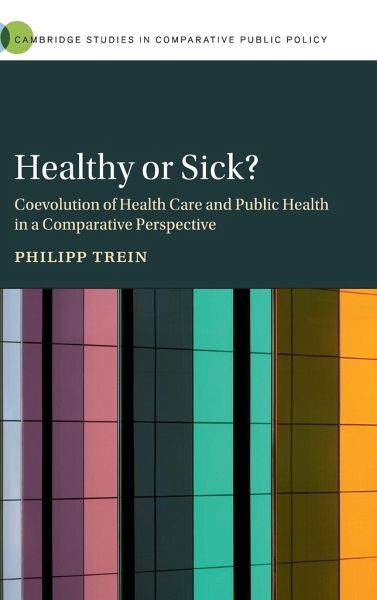Philipp Trein
Gebundenes Buch
Healthy or Sick?
Versandkostenfrei!
Versandfertig in 1-2 Wochen
Weitere Ausgaben:

PAYBACK Punkte
52 °P sammeln!




Analyses the relation of preventive and curative health policy and its evolution over time.
Philipp Trein is a postdoctoral researcher in political science at the Institute of Political, Historical, and International Studies (IEPHI) of the Université de Lausanne, Switzerland, and a visiting scholar at the Institute of European studies (IES) at the University of California, Berkeley. His research interests cover comparative public policy (coordination and integration of policies, health policy, and employment policy), comparative federalism and multilevel governance (including European studies), as well as economic voting (Germany). His research has been published or is forthcoming in the Annals of the American Academy of Political and Social Science, European Journal of Political Research, German Politics, the Journal of Public Policy, the Journal of Comparative Policy Analysis: Research and Practice, Public Administration, Publius: The Journal of Federalism, and Regional and Federal Studies.
Produktdetails
- Verlag: Cambridge University Press
- Seitenzahl: 334
- Erscheinungstermin: 1. März 2019
- Englisch
- Abmessung: 235mm x 157mm x 23mm
- Gewicht: 636g
- ISBN-13: 9781108426497
- ISBN-10: 1108426492
- Artikelnr.: 51972657
Herstellerkennzeichnung
Libri GmbH
Europaallee 1
36244 Bad Hersfeld
gpsr@libri.de
Für dieses Produkt wurde noch keine Bewertung abgegeben. Wir würden uns sehr freuen, wenn du die erste Bewertung schreibst!
Eine Bewertung schreiben
Eine Bewertung schreiben
Andere Kunden interessierten sich für













